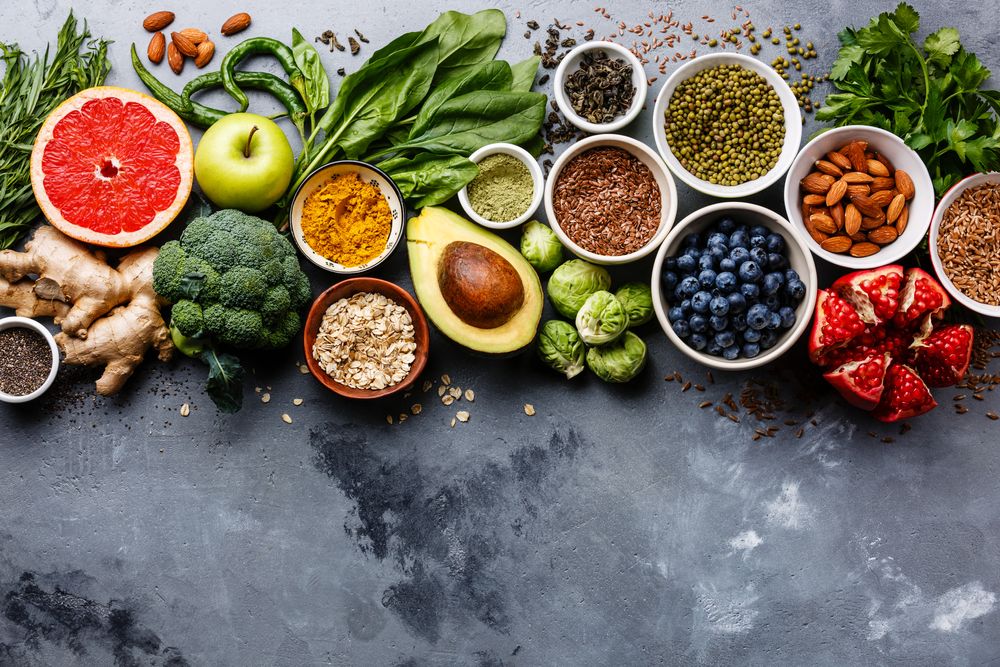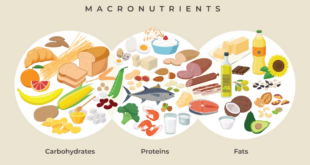7 Heart Health Benefits of Fruits – Why Add Them to Your Diet

Maintaining a healthy heart is vital for overall well-being, and one of the most effective ways to support heart health is through the food we eat. The benefits of fruits for heart health are vast, as they contain essential nutrients, antioxidants, and fiber that help protect the heart and reduce the risk of heart disease. In today’s article, we’ll explore how fruits can contribute to a healthier heart and why they should be an integral part of your diet.
At 365Tastes, we understand that a heart-healthy diet is not only about what you avoid but also about what you add to your plate. Fruits are a natural source of vitamins, minerals, and antioxidants that can work wonders for heart health. Whether you’re looking to reduce your cholesterol levels, lower blood pressure, or simply improve overall cardiovascular function, incorporating more fruits into your daily meals can make a significant impact.
In this comprehensive guide, we’ll dive into the top fruits for heart health, how they help your heart, and easy ways to include them in your diet. Keep reading to discover the benefits of fruits for heart health and how you can use them to promote a long-lasting, healthy heart.
The Power of Fruits for Heart Health
Fruits are not only delicious but also packed with a variety of nutrients that support heart function. From providing fiber to reducing cholesterol levels, fruits play a crucial role in maintaining a healthy cardiovascular system. Below are the main reasons why fruits are beneficial for heart health:
1. High in Fiber
Fiber is one of the most important nutrients for a healthy heart. It helps lower levels of LDL cholesterol (often referred to as “bad” cholesterol), which can contribute to the buildup of plaque in the arteries, a condition that leads to atherosclerosis and increases the risk of heart disease. Soluble fiber, which is abundant in fruits like apples, pears, and berries, binds to cholesterol molecules and helps remove them from the body.
Eating fruits that are high in fiber can help:
- Lower total cholesterol levels
- Improve blood sugar regulation
- Reduce the risk of heart disease
2. Packed with Antioxidants
Antioxidants protect the body from oxidative stress caused by free radicals, which can damage cells and lead to chronic inflammation—two key factors that contribute to heart disease. Many fruits, especially those with vibrant colors, are rich in antioxidants such as flavonoids, vitamin C, and carotenoids. Berries like blueberries, strawberries, and raspberries, as well as citrus fruits like oranges and grapefruits, are excellent sources of antioxidants that can help improve heart health.
Some of the key benefits of antioxidants for heart health include:
- Reducing inflammation in the arteries
- Improving blood vessel function
- Preventing oxidative damage to the heart
3. Rich in Potassium
Potassium is an essential mineral that helps regulate blood pressure. A potassium-rich diet can counteract the negative effects of sodium, which can elevate blood pressure and increase the risk of hypertension. High blood pressure is a major risk factor for heart disease, so maintaining healthy blood pressure levels is critical for heart health.
Fruits like bananas, oranges, and avocados are great sources of potassium. Consuming these fruits regularly can help:
- Lower blood pressure
- Support proper muscle function
- Reduce the risk of stroke and heart disease
4. Low in Calories and Fat
One of the best things about fruits is that they are naturally low in calories and fat, making them an excellent option for maintaining a healthy weight. Obesity is a significant risk factor for heart disease, and keeping your weight under control is essential for heart health. By replacing processed snacks and high-calorie foods with fruits, you can reduce your overall calorie intake while still satisfying your sweet tooth.
Fruits are also low in unhealthy fats, which can contribute to clogged arteries and other cardiovascular issues. Eating heart-healthy fruits can help you:
- Maintain a healthy weight
- Keep cholesterol levels in check
- Reduce the risk of heart disease
5. Hydration Benefits
Many fruits, such as watermelon, oranges, and strawberries, have a high water content that helps keep the body hydrated. Proper hydration is essential for maintaining good circulation and ensuring that the blood can flow smoothly throughout the body. Staying hydrated also helps prevent the blood from becoming too thick, which could put additional strain on the heart.
Hydrated blood promotes better circulation, reducing the risk of clotting and improving overall cardiovascular health. Fruits with high water content provide the following benefits:
- Supporting healthy blood flow
- Promoting hydration and healthy circulation
- Reducing strain on the heart
Top Fruits for Heart Health
Now that we’ve established the overall benefits of fruits for heart health, let’s take a closer look at some of the top fruits that you should include in your diet to support heart function. These fruits are rich in the nutrients and antioxidants that are essential for a healthy cardiovascular system.
1. Berries: Blueberries, Strawberries, and Raspberries
Berries are among the best fruits for heart health due to their high levels of antioxidants, especially anthocyanins, which are known for their anti-inflammatory and heart-protective properties. Regular consumption of berries can help lower cholesterol levels, improve blood vessel function, and reduce oxidative stress in the heart.
2. Apples
An apple a day is indeed beneficial for heart health. Apples are rich in soluble fiber, which helps reduce bad cholesterol (LDL) levels. They also contain flavonoids, which have been shown to improve heart health by reducing the risk of stroke and lowering blood pressure.
3. Oranges
Oranges are packed with vitamin C, potassium, and fiber—all of which are beneficial for heart health. Vitamin C is a powerful antioxidant that helps strengthen the blood vessels, while potassium helps regulate blood pressure. Additionally, the fiber content of oranges helps lower cholesterol levels, making them an excellent choice for a heart-healthy diet.
4. Avocados
Avocados are unique in that they are rich in monounsaturated fats, which are considered “good” fats. These healthy fats can help lower bad cholesterol (LDL) and reduce the risk of heart disease. Avocados are also packed with potassium, fiber, and antioxidants, all of which contribute to a healthier heart.
5. Pomegranates
Pomegranates are loaded with antioxidants like punicalagins, which help protect the heart from oxidative damage and inflammation. Studies have shown that pomegranate juice can lower blood pressure, reduce cholesterol levels, and improve blood flow to the heart. Adding pomegranates to your diet can help support cardiovascular health in multiple ways.
6. Bananas
Bananas are an excellent source of potassium, a mineral that helps regulate blood pressure and reduce the risk of hypertension. Consuming bananas regularly can help keep your blood pressure in check and lower the risk of stroke and heart disease. Bananas also contain fiber, which helps improve cholesterol levels and overall heart health.
7. Grapes
Grapes, especially red and purple varieties, are rich in resveratrol, a powerful antioxidant that has been linked to improved heart health. Resveratrol helps protect blood vessels, reduce inflammation, and prevent the formation of blood clots. Grapes also contain fiber and vitamin C, which support heart health by improving blood circulation and reducing cholesterol.
How to Incorporate More Fruits into Your Diet
Now that you know which fruits are best for your heart, it’s time to start incorporating them into your daily meals. Here are some simple and delicious ways to add more fruits to your diet:
1. Start Your Day with Fruit
Add sliced bananas, berries, or apples to your morning oatmeal or yogurt. You can also make a refreshing fruit smoothie with spinach, kale, and a variety of fruits for a nutrient-packed breakfast.
2. Snack on Fruits
Instead of reaching for chips or sugary snacks, try snacking on fresh fruit throughout the day. Keep a bowl of cut-up fruit in the fridge, or pack individual servings of fruits like apples, oranges, or grapes for a quick and healthy snack.
3. Add Fruit to Your Salads
Add fruits like strawberries, oranges, and pomegranate seeds to your salads for a burst of flavor and nutrition. Fruits pair beautifully with leafy greens, nuts, and cheese, making them a great addition to any salad.
4. Make Fruit-Based Desserts
Instead of indulging in sugary desserts, try making fruit-based treats like fruit salad, baked apples with cinnamon, or a refreshing fruit sorbet. These desserts are naturally sweet and packed with nutrients that support heart health.
5. Drink Fruit Juices and Smoothies
If you’re not fond of eating whole fruits, consider incorporating freshly squeezed fruit juices or smoothies into your diet. These can provide you with many of the same nutrients and benefits as whole fruits, making them a great alternative. However, it’s important to avoid juices that contain added sugars, as they can negate the health advantages of the fruit, increasing your calorie intake and potentially affecting your heart health. Opt for homemade versions where you can control the ingredients to maximize the nutritional value.
Conclusion: Embrace the Benefits of Fruits for a Healthier Heart
Incorporating more fruits into your diet is one of the simplest and most effective ways to support heart health. Whether you’re looking to reduce cholesterol, lower blood pressure, or prevent heart disease, fruits offer a wealth of nutrients and antioxidants that can make a significant difference. From antioxidants that fight inflammation to fiber that lowers cholesterol, the benefits of fruits for heart health are clear.
At 365Tastes, we encourage you to embrace the heart-healthy benefits of fruits and make them a regular part of your diet. By choosing fruits like berries, apples, avocados, and oranges, you can take proactive steps toward improving your heart health and enjoying a longer, healthier life.
Start today by adding more fruits to your meals, and your heart will thank you in the long run!
 Tastes | Live healthy every day
Tastes | Live healthy every day

